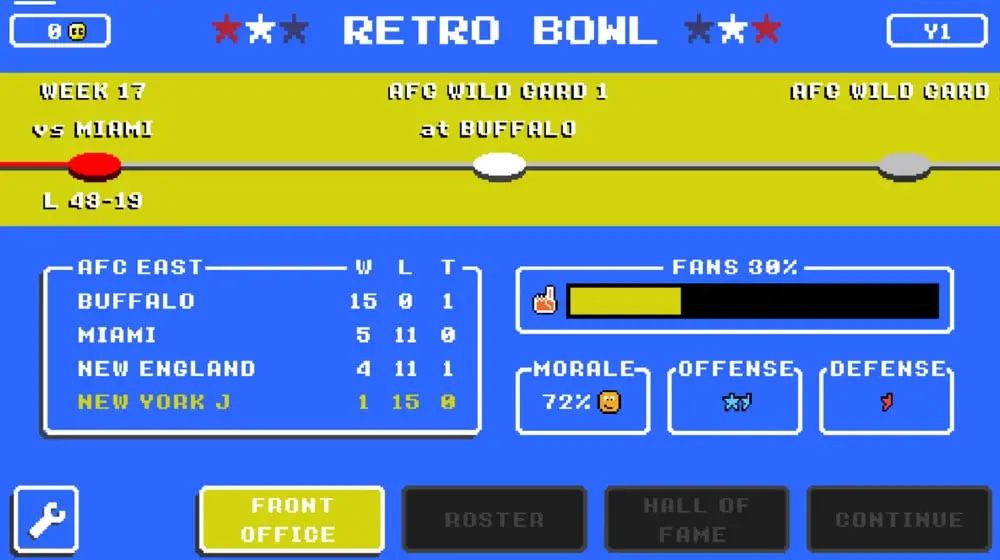Last updated on
Immerse yourself in this compelling article because it unravels how the enchanting world of mana gaming can breathe life into everyday routines with a dash of creativity and fun.
Navigating the intersection of your gaming passion and everyday life doesn’t have to feel like an impossible quest. If you ever find yourself trying to cast a balance spell between ‘mama needs mana’ and managing the myriad ‘IRL things,’ you’ve stumbled upon the right strategy guide.
Here, you’ll uncover the art of setting realistic gameplay expectations, why turning off the console for a good night’s sleep is crucial, and how to effectively hit pause to maintain your health.
You’ll also learn to level up your prioritization skills to keep your daily quests in check, and how to choose a gaming partner who won’t lead you into the realm of chaos.
Follow along for actionable insights that promise to harmonize your dual worlds.
Key takeaways:
- Set realistic expectations for balancing gaming and daily life.
- Establish strict bedtime rules to prioritize restful sleep.
- Take routine breaks during gaming sessions for physical and mental well-being.
- Prioritize playtime goals to ensure gaming does not encroach on responsibilities.
- Find the perfect gaming partner with compatible play styles and qualities.
Set Realistic Expectations

Understanding the finite nature of time ensures a balanced approach to gaming and daily life. Acknowledge the need for flexibility, recognizing that unplanned events can often dictate adjustments to gaming sessions.
Prioritize essential tasks and responsibilities, setting aside time for gaming that doesn’t conflict with family needs or personal well-being. Embrace the quality of gaming experiences over the quantity.
Keeping these points in mind allows for a satisfying and sustainable integration of gaming into your lifestyle.
Establish Strict Bedtime Rules

Ensuring a restful night’s sleep is non-negotiable for balancing gaming and parenting responsibilities. Enforce a consistent bedtime for yourself and your children to maximize energy levels for game time and daily life:
- 1. Determine an ideal bedtime that allows for 7-9 hours of sleep.
- 2. Create a relaxing bedtime routine for the family, such as reading or quiet activities.
- 3. Keep screens out of the bedroom at least 30 minutes before sleep to encourage better sleep quality.
- 4. If gaming runs late, set a hard stop at least an hour before lying down to allow your mind to unwind.
- 5. Be firm yet flexible, understanding there may be exceptions on special occasions.
- 6. Use sleep tracking apps to monitor your sleep patterns and adjust bedtime accordingly for better rest.
By instilling these habits, you create a foundation of rest that fuels your gaming enjoyment and daily vigor.
Take Routine Breaks

Incorporating regular pauses into your gaming sessions can enhance your physical well-being and mental clarity, allowing you to return to your real-life responsibilities feeling refreshed.
- Use a timer: Set a countdown to remind you to step away from the screen. Even a brief 5-minute break every hour can make a difference.
- Stretch it out: When the timer goes off, stand up, stretch your limbs, and take deep breaths to re-energize.
- Eye health: Look away from the screen at something in the distance to reduce eye strain. Practice the 20-20-20 rule — every 20 minutes, focus on an object 20 feet away for at least 20 seconds.
- Hydrate: Grab a glass of water during your break to stay hydrated; it helps in maintaining focus and keeps energy levels steady.
- Quick tidy: Use this moment to clear any clutter that might have accumulated during your game session.
- Involve the family: Brief breaks can be a great opportunity to check in with your kids or partner, keeping those vital connections strong.
Prioritize Playtime Goals

To ensure your gaming sessions are fulfilling without encroaching on real-life responsibilities, setting objectives is key. Here are a few strategies:
- Set Specific In-Game Targets: Determine what you want to accomplish during your gaming time, such as completing a level or reaching an achievement. This keeps your sessions focused and productive.
- Limit Time-Based Sessions: Decide on a fixed amount of time for gaming. Whether it’s 30 minutes or an hour, this helps you stay mindful of time spent.
- Create a Reward System: Align gaming milestones with real-life tasks. Only allow yourself game time after household chores or family duties are completed.
- Use a Timer: Having visual or audible reminders can effectively keep you on track.
- Adjust Goals According to Real Life: Be flexible and willing to change your gaming goals based on daily life demands.
By implementing these tactics, you’ll reap the satisfaction of playtime without neglecting essential life tasks.
Find the Perfect Gaming Partner
When searching for someone to share in your digital adventures, consider the following:
1. Compatible Play Styles: Look for partners who enjoy similar game genres and play at a pace you’re comfortable with. Whether you favor fast-paced action or strategic planning, aligning play styles ensures a harmonious gaming experience.
2. Communicative & Cooperative: Communication is key in co-op gameplay. Seek players who contribute to a teamwork environment and value collaboration over competition.
3. Reliability: A dependable gaming partner is present for planned game sessions and respects the time you set aside for gaming.
4. Encouraging & Positive: Emphasize finding individuals who foster a supportive atmosphere, celebrating successes and offering constructive feedback during challenges.
5. Respectful of Boundaries: Good gaming partners respect your need to balance gaming with other life responsibilities and will not pressure you to play beyond agreed times.
By prioritizing these qualities, you can forge fulfilling connections that enhance both your gaming sessions and your everyday life.
Establish Compatibility With Gaming Partners
Navigating the world of gaming with a partner can elevate your experience, but it’s vital to ensure you’re both on the same page. Consider the following to foster a compatible gaming duo:
1. Communicate Preferences: Discuss what each enjoys in games—whether it’s genres, play styles, or levels of competition.
2. Schedule Sessions: Find common times that suit both of your routines. Agreeing on a gaming schedule can prevent conflicts and ensure quality time together.
3. Respect Skill Levels: If there’s a skill gap, be patient and encourage each other’s progress rather than focusing on wins and losses.
4. Alternate Game Choices: Take turns choosing games to play together. This keeps the gaming dynamic fair and diverse.
5. Establish Goals: Set shared objectives, whether it’s reaching a particular level, completing a game, or just having fun.
Remember, gaming together should be about strengthening your bond and enjoying shared interests.
Take Care of Your Relationships
Balancing your gaming passion alongside a vibrant relationship landscape requires attentive nurturing. Here are actionable ways to maintain and strengthen your connections:
- Schedule Non-Gaming Time: Deliberately set aside quality moments with loved ones, free from digital distractions.
- Communicate Openly: Keep channels of communication wide open, sharing your gaming schedule and listening to their needs.
- Involve Them: When appropriate, invite family and friends to participate in gaming activities, transforming it into a shared hobby.
- Celebrate Their Interests: Show enthusiasm and support for their endeavors, reflecting the interest they show in your gaming pursuits.
- Recognize Signs: Stay attuned to signals that indicate your loved ones need more attention, and be ready to press pause on gaming.
- Share Your World: Educate them about your gaming world, creating a common understanding and appreciation for your passion.
Remember, reciprocity is the cornerstone of any healthy relationship. Balance is not just managing time but also investing emotional presence in those personal interactions.
Take Care of Your Health
In the midst of the excitement gaming offers, it’s pivotal to prioritize your well-being:
1. Stay Active: Incorporate light stretches or a quick walk between gaming sessions to keep blood flowing and prevent muscle stiffness.
2. Hydration is Key: Always have a water bottle handy. Staying hydrated helps maintain focus and energy levels, both critical for gaming and daily activities.
3. Mindful Eating: Choose snacks that fuel your body with energy, like nuts, fruits, or yogurt, instead of reaching for sugary treats that could lead to an energy crash.
4. Eye Health: Follow the 20-20-20 rule to reduce eye strain—every 20 minutes, look at something 20 feet away for 20 seconds.
5. Sleep Well: Ensure you’re getting enough sleep each night to restore your body and mind, keeping your reflexes sharp for gaming and real-life tasks.
6. Mental Wellness: Take moments throughout the day to practice mindfulness or meditation, which can enhance concentration and reduce stress levels.
Remember, your health is the foundation upon which a fulfilling gaming lifestyle is built.
Eat Healthy Food
Fueling your body with nutritious meals is essential, especially when balancing gaming with other life responsibilities. Swapping out chips for cut veggies and hummus can keep energy levels steady. Embrace slow-release carbohydrates like sweet potatoes or brown rice during marathon sessions to prevent crashes.
Keep a water bottle handy to stay hydrated, as it’s easy to forget to drink when you’re caught up in a game. Quick, protein-rich snacks like a handful of almonds or a yogurt can boost concentration and prevent hunger pangs. Planning and preparing meals in advance is a game-changer, ensuring you have healthy options on hand when time is tight.
Take Care of Your Family
Balancing family responsibilities with gaming pursuits involves organization and communication. Here are several points to ensure your household thrives:
1. Create a Shared Calendar: Sync schedules to keep track of family commitments, ensuring everyone knows when you’ll be available or immersed in your game.
2. Involve Your Family: Introduce age-appropriate games to play together, fostering bonding and understanding of your hobby.
3. Communicate Openly: Discuss your gaming time with your family. When they understand it’s a form of relaxation, they’re more likely to support it.
4. Set Priorities: Make certain family commitments take precedence. Ensure gaming does not interfere with essential family time or responsibilities.
5. Encourage Independence: Teach children and other family members to engage in their hobbies or tasks while you’re gaming, promoting a healthy balance of independence and togetherness.
6. Quality over Quantity: When spending time with family, focus on meaningful interactions rather than the duration. Make the moments count.
The Allure of Gaming
Gaming captivates with its immersive worlds that provide a temporary escape from the hustle and bustle of daily life. It’s a digital playground where challenges can be met and overcome, offering a sense of achievement that might be harder to find in everyday routines.
The social aspect cannot be overstated; connecting with fellow gamers across the globe fosters a community spirit, promoting teamwork and friendship—virtual bonds that can be as meaningful as their real-life counterparts.
Additionally, the ongoing evolution of games keeps the experience fresh and exciting, with new stories, innovations, and technologies continually renewing the lure.
The Real-Life Juggle
Balancing gaming with daily responsibilities can be likened to a performance art, where each aspect of life is a ball that requires attention to keep it in the air. Mastering this juggle involves a few key tactics:
- Creating a Schedule: Designate gaming hours that don’t conflict with work or family time. Consider gaming as an appointment, just like any other important event, to give it a place in your routine without letting it overrun other priorities.
- Communicating with Family: Involve your family in your gaming schedule. By letting them know when you’ll be gaming, it allows for mutual respect for each other’s leisure time and commitments.
- Efficient Time Management: Utilize time-saving hacks for household tasks. Meal prepping, online grocery shopping, and combining errands can open up more leisure time without neglecting responsibilities.
- Setting Limits: Recognize the signs of gaming fatigue and know when it’s time to power down. Constant monitoring ensures that leisure time rejuvenates rather than drains.
By applying these strategies, the real-life juggle becomes manageable, keeping the equilibrium between the virtual and the real.
Mama Needs Mana: Finding Balance
To maintain a fulfilling lifestyle while indulging in gaming, consider the following points:
- Schedule Gaming: Allocate specific time slots for gaming. This ensures that gaming doesn’t overrun other important daily activities.
- Multitasking with Moderation: Listen to podcasts or audio-based content while gaming to enrich your experience without extra time commitment.
- Tech-Free Zones: Designate areas in your home where no devices are allowed, creating spaces for family interaction and personal downtime.
- Self-Care Rituals: Incorporate short, rejuvenating activities into your routine, like a 10-minute meditation or a brisk walk, to refresh your mind.
- Involve the Family: Occasionally, choose games that are family-friendly, creating shared experiences and bonding opportunities.
- Acknowledge Limits: Recognize when gaming is impacting your wellbeing, and be willing to step back and reassess your priorities.
Implementing these strategies can lead to a harmonious balance between your passion for gaming and the demands of everyday life.
Strategies for Integrating Gaming and Life
Synchronize your gaming schedule with your daily routine to ensure it complements, rather than conflicts with, your responsibilities. For instance, play during downtime or after completing household chores.
Utilize mobile or casual games that can be paused or stopped at a moment’s notice. This flexibility allows you to manage sudden real-life priorities without losing progress.
Involve your family in your gaming, by picking titles that are age-appropriate and fun for group play. This promotes bonding and shared interests.
Set boundaries for gaming time to prevent overindulgence. Use a timer or alarms as reminders to switch off the console and return to real-life duties.
Leverage gaming to enhance productivity. Reward yourself with game time after accomplishing tasks or use in-game achievements as motivation to replicate success in real-world activities.
Encourage and participate in gaming discussions with peers or family members. This inclusion can lead to better understanding and support within your personal relationships.
Nurturing Relationships in the Gaming Community
Building strong bonds within the gaming community can be incredibly rewarding. Here are a few tips to help you connect and nurture those relationships:
1. Engage Regularly: Like any relationship, communication is key. Participate in forums, join discussions on social media or in-game chats, and share your experiences.
2. Join a Clan or Guild: Align yourself with a group of players who have similar interests and goals. This shared identity can lead to deeper connections.
3. Collaborate and Share Resources: Whether it’s teaming up for a difficult quest or exchanging tips, helping each other is a great way to build trust.
4. Attend Gaming Events: Nothing beats face-to-face interaction. If feasible, go to local or national gaming conventions and meet-ups.
5. Respect Different Playing Styles: Understand that everyone has their own approach to gaming. Respecting their style can lead to mutual appreciation.
6. Supportive Gaming: Celebrate your friends’ victories and offer encouragement during challenging times. This positive reinforcement can strengthen your gaming circle.
7. Be Inclusive: Welcome new players and help them find their footing within the community. Creating an inclusive environment fosters goodwill.
8. Balance Competition and Fun: While healthy competition can be exhilarating, remember that having fun should be at the heart of your interactions.
Real-Life Skills Gained Through Gaming
Gaming can be more than just an entertaining pastime. It often serves as a platform to develop valuable skills that are highly transferable to real-world situations. Players regularly enhance their strategic thinking through complex game scenarios that require thoughtful planning and quick decision-making.
Team-based games cultivate collaboration and communication skills, as players must work together to achieve shared goals. This environment replicates team dynamics found in many professional workplaces.
Additionally, time management emerges as a critical skill, particularly in games with time constraints or those that require balancing various tasks simultaneously. Resource management games, for instance, subtly teach budgeting and prioritizing resources, a directly applicable skill in everyday life.
The need to adapt to rapidly changing situations in many games also improves problem-solving abilities and flexibility.
Moreover, perseverance is often built through challenging game experiences, reinforcing the notion that consistency and effort can lead to success. These gaming experiences, when reflected upon, uncover valuable lessons about persistence and learning from failure.
Overcoming Stereotypes and Misconceptions
Confronting outdated notions head-on, it’s essential to showcase the diverse and inclusive nature of the gaming community. Here are key ways to shift perspectives:
- 1. Share stories of positive experiences and family bonding over games to illustrate its communal aspect.
- 2. Highlight educational and cognitive benefits of gaming to help dismantle the ‘time-waste’ myth.
- 3. Promote the representation of all ages and genders in gaming to break the stereotype of the ‘typical gamer’.
- 4. Participate in community events and discussions to foster an open dialogue about the reality of gaming as a hobby.
- 5. Advocate for balance and responsibility, demonstrating that gaming can coexist with a well-rounded lifestyle.
Embracing a Wholesome Gaming Lifestyle
Cultivating a wholesome gaming lifestyle goes beyond the screen, infusing positivity into every aspect of daily living. Embrace these concepts to enhance your gaming journey:
1. Balance Screen Time: Moderation is key. Allocate specific hours for gaming and adhere to them to ensure other life aspects remain unaffected.
2. Family Inclusion: Involve your family in your gaming world. Whether through co-op play or sharing your gaming achievements, make it a shared experience.
3. Positive Online Interactions: Foster kindness and support within your online communities. Encouraging others and being a positive force contributes to a healthier gaming environment.
4. Gaming Detox: Regularly disconnect to recharge. Spend time outdoors, read a book, or engage in other hobbies that provide a well-rounded life experience.
5. Educational Gameplay: Choose games that sharpen your mind or teach new skills. Puzzle games, strategy games, and those with rich storylines enhance cognitive functions and knowledge.
6. Philanthropy Through Gaming: Participate in charity streams or gaming events that support good causes. Gaming can be a powerful tool for making a positive impact in the world.
Continue reading:
Recap



